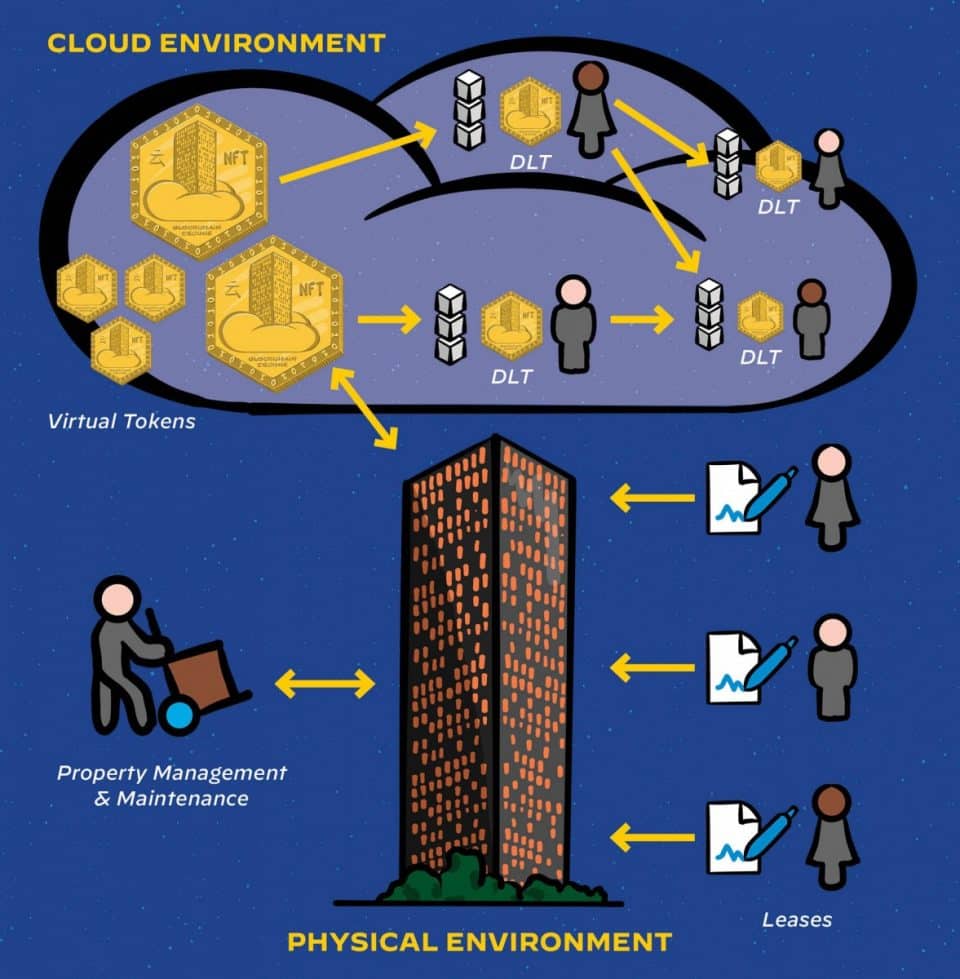Tokenizing UK Council Homes

The UK Council homes market has been in need of reform for some time. Decades of underinvestment have left many properties in a poor state of repair, whilst rising demand and limited supply has pushed up rents for those in need of affordable housing. In recent years, there has been a growing interest in the use of tokenization to address some of these challenges.
Tokenization refers to the process of converting ownership of an asset into digital tokens. These tokens can then be traded on a blockchain-based platform, allowing individuals to buy and sell fractions of an asset with ease. This technology has the potential to revolutionize the way that assets are bought and sold, by increasing liquidity, reducing transaction costs and improving transparency.
In the context of UK Council homes, tokenization could offer a range of benefits. Firstly, it could make it easier for councils to access funding for repairs and upgrades. By issuing tokens that represent ownership of their properties, councils could sell fractions of these tokens to investors, raising funds for much-needed repairs and upgrades. This could be particularly useful in the current economic climate, where councils are facing increasing pressure to cut costs whilst still providing essential services.
Secondly, tokenization could help to address the issue of limited supply. By making it easier for councils to access funding, tokenization could enable them to build more properties, increasing the supply of affordable housing in the UK. This would not only benefit those in need of housing, but also create jobs and stimulate economic growth.
Thirdly, tokenization could help to reduce the cost of housing for those in need. By enabling individuals to buy and sell fractions of properties, tokenization could increase competition in the market, potentially driving down rents. This would be particularly beneficial for those who are struggling to afford housing in the current climate.
Another benefit of tokenization is that it could increase transparency in the housing market. By recording ownership of properties on a blockchain-based platform, it would be easier to track ownership and changes in ownership over time. This could help to prevent fraud and ensure that properties are owned and managed by the right people.
Finally, tokenization could help to democratize property ownership. By enabling individuals to buy and sell fractions of properties, tokenization could make it easier for people to invest in the housing market. This would not only benefit those who are looking to get onto the property ladder, but also provide a new asset class for investors to consider.
Of course, there are also potential risks associated with the tokenization of UK Council homes. One of the main concerns is that it could lead to a loss of control for councils, as they would no longer have sole ownership of their properties. This could lead to a range of issues, including difficulties in managing repairs and maintenance, as well as potential conflicts of interest between different stakeholders.
Another concern is that tokenization could lead to increased speculation in the housing market. If individuals are able to buy and sell fractions of properties with ease, this could potentially drive up the price of housing, making it even more difficult for those in need of affordable housing.
There are also concerns around the regulatory environment for tokenization. Whilst blockchain technology has the potential to revolutionize the way that assets are bought and sold, it is still a relatively new and untested technology. As such, there are questions around how it would be regulated and who would be responsible for ensuring that it is used in a safe and responsible way.
Despite these concerns, there is a growing interest in the potential for tokenization in the UK Council homes market. In 2020, the London-based blockchain firm, Blocksure, launched a project aimed at exploring the use of tokenization to finance the repair and upgrade of UK Council homes. The project, which is still in its early stages, aims to create a digital platform that will enable councils to issue tokens representing ownership of property.
